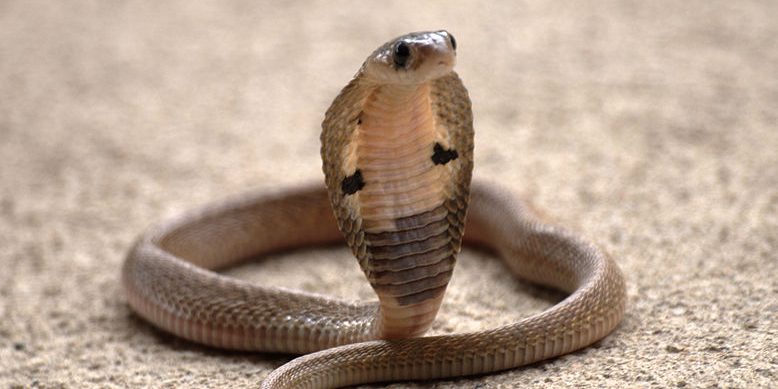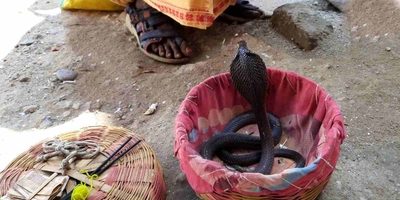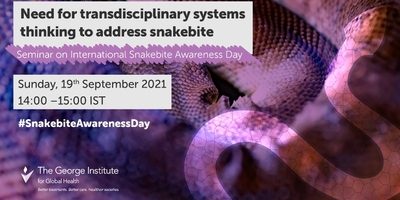
COVID-19 and its impact on snakebite care in India: a bane or a boon?
The double whammy of poor-quality care with non-availability of life-saving healthcare services for snakebite in the COVID-19 scenario may result in significant surge in cases of snakebite deaths and cases of disability, especially in the high-burden states, writes Deepti Beri.
The novel coronavirus (COVID-19), a global pandemic that has disrupted the world since early 2020, with more than 5.3 lakh reported deaths worldwide. However, there are several health conditions, leading to thousands of deaths which continue to remain unnoticed. One such condition is Snakebite.
Snakebite leads to nearly 81,000 to 1,38,000 deaths worldwide each year. Despite that, it fails to make a mark on the health policy agenda. Deaths due to snakebite are entirely preventable, given the patients receive adequate and timely treatment. However, it is unfortunate that deaths due to snakebite continue to occur even today.
In India, accurate official figures on snakebite deaths are not available. The government data entirely based on hospital reporting suggests conservative estimates with only about a thousand deaths each year. However, the national mortality survey under the ‘Million Death Study’ estimated nearly 50,000 snakebite deaths every year in India. This is almost half the burden of all snakebite deaths globally.
Owing to lack of basic healthcare services together with the lack of education and awareness, it is often seen that people bitten by snakes fail to receive timely medical attention. Amid the COVID-19 crisis, the situation for snakebite patients have got worse while hospitals gear up for responding primarily to the upsurge of COVID-19 cases. Although nearly 70% of all snakebites are by non-venomous snakes, they often need evaluation in a hospital. People bitten by poisonous snakes need timely administration of anti-venom as they may suffer from complications like respiratory failure, renal failure, internal bleeding, or paralysis, requiring intensive care support (ICU).
With severe COVID-19 patients also requiring ICU admission, governments are boosting availability of mechanical ventilation and oxygen supply, in addition to intensive care facilities in general. However, the arrangement wherein life-saving equipment are being reserved exclusively for COVID-19 patients is a major cause of worry.
Snakebite is mostly recognised as a disease of the poor with almost 97% of snakebite deaths being reported from rural areas of India where people are deprived of even basic-medical facilities. With limited infrastructure at government health facilities, not every victim of severe snake envenomation is fortunate to receive an ICU bed or other life support mechanism.
With only 95,000 ICU beds and 47,500 ventilators in the public and private sector in India there is a massive disruption of medical services for other diseases in the county. This deficit is putting an immense strain on the Indian health system. The double whammy of poor-quality care with non-availability of life-saving healthcare services for snakebite in the COVID-19 scenario may result in significant surge in cases of snakebite deaths and cases of disability, especially in the high-burden states.
However, India may see a ray of light for managing patients needing intensive care including snakebite treatment as the governments ramp up healthcare infrastructure in response to the pandemic. Some commentators have also opined that addition of ventilators and ICU beds for managing COVID-19 in Odisha, a boon for snakebite victims in future, once the pandemic subsides. However, the pandemic ending is few years down the road and only time can tell if the snakebite challenge is truly addressed with addition of these extra infrastructures. In the meantime, strengthening health systems to address the issue of snakebite is the only real solution at hand.
The George Institute for Global Health, India is conducting a study to understand how and why the cluster-containment strategy for COVID-19 control is affecting access and quality of snakebite care in India. This will help inform health systems response to future pandemics.







